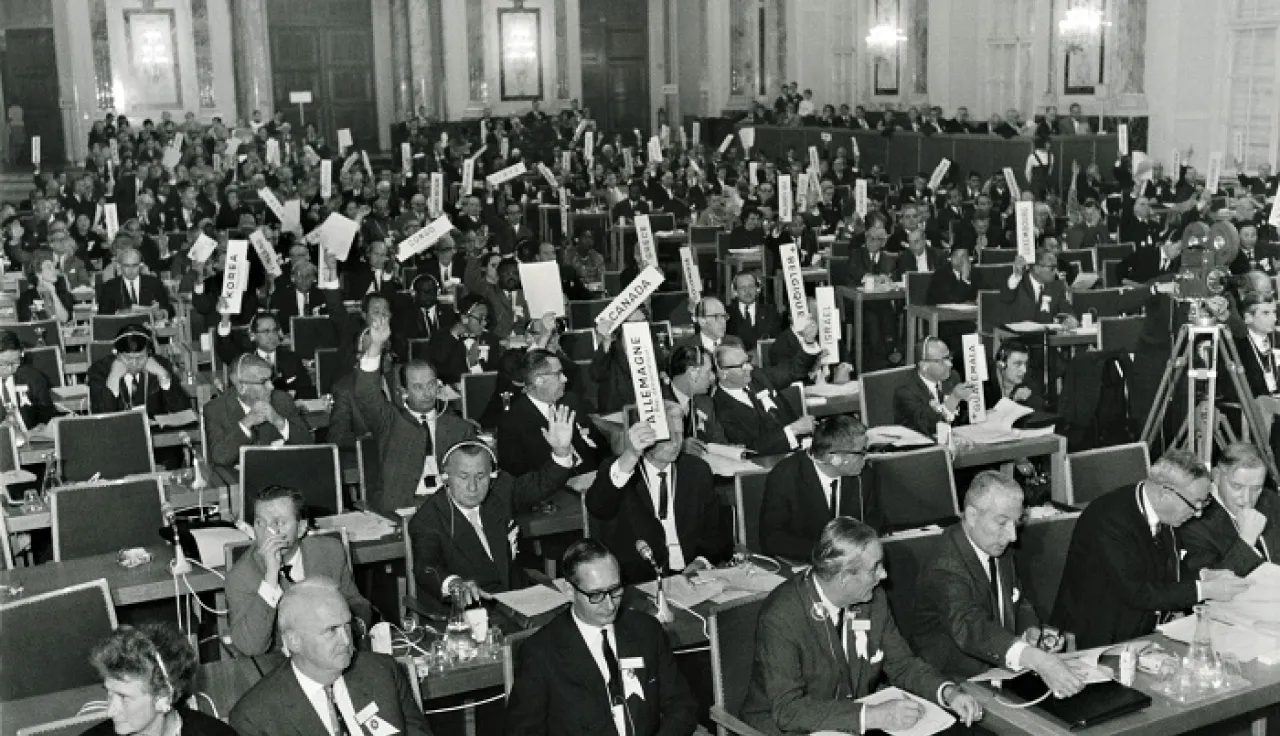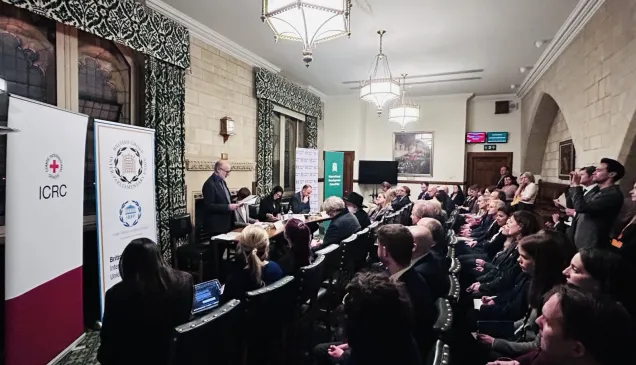Connecting with the past: The Fundamental Principles in critical historical perspective

For more than half a century, the Fundamental Principles of humanity, impartiality, neutrality, independence, voluntary service, unity and universality have underpinned the global humanitarian work of the International Red Cross and Red Crescent Movement. But how have these principles evolved since their codification in 1965, and to what extent have they been adapted for modern day conflict and emergency contexts? Are certain principles more 'valuable' than others, and what can the successes, failures and controversies of the past teach us about the future of humanitarian work?
These are just some of the thought-provoking questions raised in a new report: Connecting with the Past: The Fundamental Principles in Critical Historical Perspective. The report, a collaboration between the ICRC, Exeter University and the UK Arts and Humanities Research Council, reflects the debates and key points raised by eminent academics, historians and humanitarians who attended a symposium at ICRC headquarters in Geneva in September, 2015. The event and related report, examine five significant periods of history, starting with the founding of the Red Cross in 1865 and ending with the post 9/11 era and the many unprecedented and complex humanitarian challenges that have arisen throughout.
"The long history of the Movement is an invaluable guide when it comes to meeting the challenges of the 21st Century," said ICRC president Maurer, himself a trained historian. "An especially important challenge is to define and affirm what neutral, independent and impartial humanitarian action is."
"The fundamental principles should not be seen as a static entity, or be taken for granted," says Markus Geisser, senior policy advisor for the ICRC Mission to the UK and Ireland. "And as his report highlights, throughout history there have always been 'stubborn realities' and difficulties with putting the principles into action. We can't just look at the successes, each generation needs to continuously look back and learn from the past."
The report tackles complex issues such as the instrumentalisation of humanitarian organisations by States and asks how the application of the fundamental principles can counter the ever-persistent risk of aid being used for political purposes.
The principle of neutrality also features prominently in the report, with examples of the Cold War period, the Boer War and the Spanish civil war providing important lessons learnt with regards to the provision of humanitarian assistance in civil and ideological situations of warfare.
The report also questions how the perception of the fundamental principles by States, donors, non-State armed groups and those the Movement strive to help has changed throughout the decades. Can the principles, essentially conceived in a Christian, western European context, transcend cultures and be accepted universally?
Professor Andrew Thompson from the University of Exeter and co-organiser of the Geneva event, says the humanitarian sector has to constantly guard itself against what might be called the 'arrogance of the present.' "A key question emerges about how you create consensus around the meaning and value of the Fundamental Principles, which is necessary for the ICRC and the Movement to move forward. Critical reflection on the past is a vital part of this process."
Download the full PDF report here
Video: Stubborn realities, shared humanity



